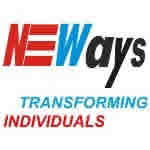|
|
Auditing Organisations Culture Course
NGN 315,000Get 5.00% off
|
Venue: Lagos
Other Dates
| Venue | Date | Fee | |
|---|---|---|---|
| Lagos, Lagos State, Nigeria | 09 - 12 Sep, 2025 | NGN315000 | |
| Lagos, Lagos State, Nigeria | 09 - 12 Dec, 2025 | NGN315000 | |
| Lagos, Lagos State, Nigeria | 18 - 21 Mar, 2026 | NGN315000 |
The aim of this course is to study and examine an organization's cultural characteristics (such as its assumptions, norms, philosophy, and values) to determine whether they hinder or support its vision and mission.
A strong company culture has always been important for sustained organizational success - with benefits including a clear company identity, improved talent attraction and retention, and a better brand and employment image.
New developments, however, make a strong culture a near necessity.
What’s new?
- Recognizing the benefits of strong cultures, more organizations are focused on creating one. Workplace expert Larry Alton noted, “If you don’t at least keep pace with a strong culture and find a way to differentiate yourself, you’re going to fall behind.”
- In deciding where to work, millennial value a strong company culture more than anything else.
- The hyper-competitive modern startup economy “forces entrepreneurs to find a sticking point for workers who may otherwise bounce after a short-term assignment.”
We’ll list two more developments:
- There’s never been more visibility into organizational culture than now. For example, candidates can see social media posts about what it’s like to work at an organization. Or, if they know someone who works at the organization, learning about the culture is just a quick text or instant message away.
- The candidate-friendly labor market makes talent attraction and retention more important than usual.
This course will examine what we mean by culture, sub-culture and how this differs from behaviour. It will equip audit teams with an ability to critically evaluate those who want to argue that culture can be “bottled and managed” through surveys and discussion groups, highlighting how easy it could be for audit to get “drawn in” to cultural blind-spots, which might limit its ability to be truly independent and objective in this important but complex area.
The course will discuss good practice approaches to tackling culture through enhancing root cause analysis and watching behaviours during assignments, and will also highlight pitfalls including underestimating the criteria for any audit of culture and the political dimensions of any work in culture.
Who Should Attend?
Heads of internal audit and audit managers.
What will I learn?
Upon completion you will be able to:
- Understand key guidance concerning internal audit's role in looking at culture
- Understand the psychological and systemic drivers that create culture, sub-cultures and individual behaviors
- Understand the many different ways to approach an analysis of culture (including measuring management attitudes to audit) and the benefits and pitfalls of each
- Start to deepen your understanding of your organization’s culture and your audit team culture and how this can and will affect your approach to auditing culture in your own organization.
Course Outline
- Definitions
- Definitions and models of culture - no one correct version - no matter what anyone tells you
- Where does culture come from?
- Psychological factors - individual, national, group dynamics and dealing with authority/politics
- Differences between the espoused and real culture – understanding defensive routines.
- Why is culture hard to measure?
- What can and cannot be inferred from staff surveys
- The link between risk appetite and risk culture and the problem of finding suitable criteria when looking into cultural issues.
- Chartered Institute of Internal Auditors ( IIA) and other guidance concerning culture
- Overview of Chartered IIA, Financial Conduct Authority ( FCA) etc. guidance.
- Practical approaches and good practices
- Paying attention to audit behaviors and management attitude towards audits
- Root cause analysis and culture
- Practical first steps.
- Looking ahead
- Recognizing the limits of internal audit in this area – the risk of taking on a management role and of false assurance
- Being able to critically evaluate the strengths and weaknesses of using consultants to help you work on this area.
Course Booking
Please use the “book now” or “inquire” buttons on this page to either book your space or make further enquiries.
| Lagos | Jun 17 - 20 Jun, 2025 |
| Lagos, Lagos State, Nigeria | 09 - 12 Sep, 2025 |
| Lagos, Lagos State, Nigeria | 09 - 12 Dec, 2025 |
| Lagos, Lagos State, Nigeria | 18 - 21 Mar, 2026 |
| NGN 315,000.00 | (Foreign Participant ($600) The program fees covers tuition, Course Materials, Tea/Coffee Break, Lunch, Bag, Certificate of participation and administration) |
Dr Chris Egbu +2348023194131
Related Courses
 Governance and Management of Digitalization, Artificial Intelligence, Analytics, Cyber Security and IT Course
Governance and Management of Digitalization, Artificial Intelligence, Analytics, Cyber Security and IT Course
4 days, 24 - 27 Jun, 2025
Newways Consulting
 Risk- Based Internal Auditing Strategies and Fraud Risk Mitigation Course
Risk- Based Internal Auditing Strategies and Fraud Risk Mitigation Course
3 days, 22 - 24 Jul, 2025
Newways Consulting
 Storage and Handling of Toxic Chemicals and Hazardous Materials Course
Storage and Handling of Toxic Chemicals and Hazardous Materials Course
4 days, 08 - 11 Jul, 2025
Newways Consulting
 Effective Management of Bank Account Reconciliation and Account Receivable/Payable Course
Effective Management of Bank Account Reconciliation and Account Receivable/Payable Course
3 days, 24 - 26 Jun, 2025
Newways Consulting
Currency Converter




.png)